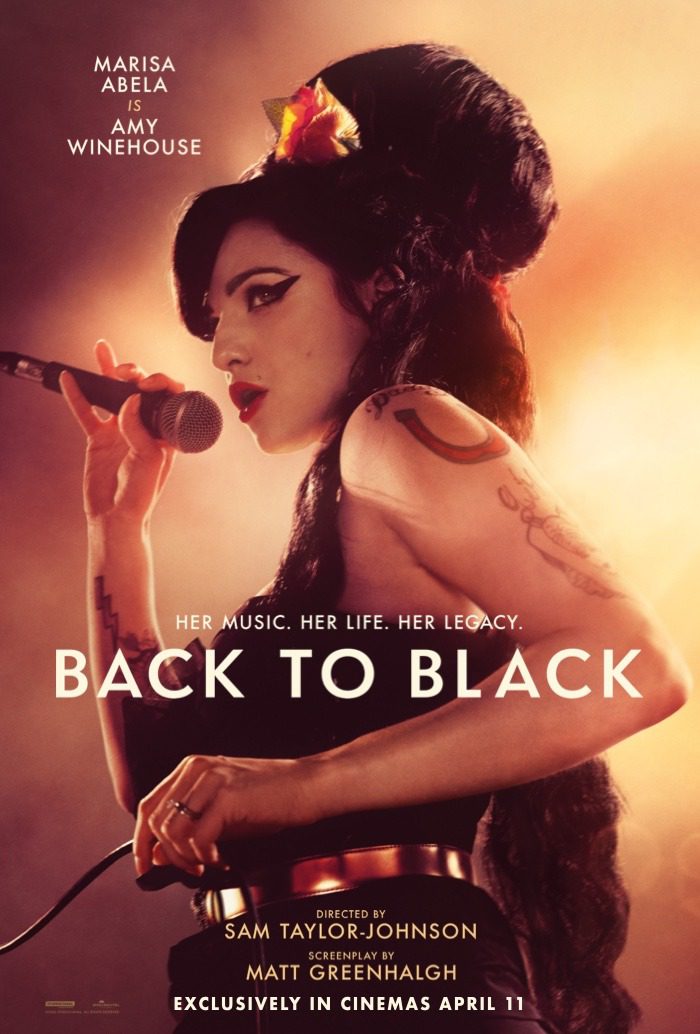Sam Taylor-Johnson’s Back to Black attempts to capture the whirlwind that was Amy Winehouse’s life, a biopic centered around the creation of her landmark album of the same name. While the film boasts a powerhouse performance by Marisa Abela as Winehouse, ultimately it falls short of a truly resonant portrayal, leaving audiences with a sense of missed opportunity.
Abela is undeniably the saving grace of Back to Black. She embodies Winehouse’s swagger and vulnerability with remarkable accuracy. Whether belting out a song or cracking a self-deprecating joke, Abela inhabits the role fully. Her portrayal captures the fire of Winehouse’s talent alongside the demons that would ultimately consume her.
However, the script by Matt Greenhalgh struggles to offer the same depth. The film chronicles Winehouse’s tumultuous relationship with Blake Fielder-Civil (Jack O’Connell), a relationship that undeniably fueled her creative fire but also spiraled into addiction. While the toxic dynamic is portrayed, the film feels content to skim the surface, offering little exploration of Winehouse’s inner world beyond her connection to Fielder-Civil.
This focus on the romance minimizes other important aspects of Winehouse’s life. Her musical inspirations, the struggles of navigating fame, and the complex web of relationships with family and friends all receive cursory attention. The film feels like a collection of well-known biographical bullet points strung together, lacking the emotional depth to truly connect with the audience.

Furthermore, the portrayal of Winehouse’s struggles with addiction feels exploitative at times. While addiction is undeniably a part of her story, the film risks sensationalizing it. The audience witnesses a descent into chaos, but there’s little exploration of the underlying causes or the internal battles Winehouse likely faced.
Technically, the film is well-crafted. The production design meticulously recreates the early 2000s London scene, and the camerawork effectively captures the frenetic energy of Winehouse’s performances. However, the music itself, the very essence of Winehouse’s legacy, feels oddly disconnected from the narrative. The iconic songs are present, but they often feel inserted rather than woven into the fabric of the film.
Those expecting a warts-and-all exploration of Winehouse’s life will likely be disappointed by “Back to Black’s” sanitized portrayal. The film shies away from truly confronting the darker aspects of her story. However, for those unfamiliar with Winehouse, the film serves as a decent introduction to her music and tragic trajectory.
Ultimately, Back to Black is a frustrating experience. Abela’s electrifying performance deserves a better film. While the technical aspects are commendable, the shallow script and exploitative elements leave a sour taste. This biopic feels like a missed opportunity to truly capture the complex brilliance and heartbreaking struggle of Amy Winehouse.
About Black To Black
Synopsis: A celebration of the most iconic – and much missed – homegrown star of the 21st century, BACK TO BLACK tells the extraordinary tale of Amy Winehouse. Painting a vivid, vibrant picture of the Camden streets she called home and capturing the struggles of global fame, BACK TO BLACK honors Amy’s artistry, wit, and honesty, as well as trying to understand her demons. An unflinching look at the modern celebrity machine and a powerful tribute to a once-in-a-generation talent.
Director: Sam Taylor-Johnson
Writer: Matt Greenhalgh
Starring: Marisa Abela, Eddie Marsan, Jack O’Connell, Lesley Manville
Rated: R
Runtime: 2h 2m
Releases: May 17, 2024
he/him • aapi • intj • geek • photographer • journalist • podcaster • martial artist • foodie • dj • cinephile • gamer • traveler




























